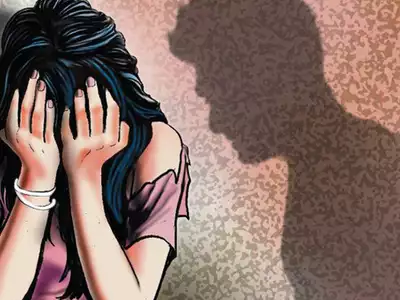Bombay High Court grants relief to Russian woman with 6-month-old child who was directed to exit India after divorce from Indian husband
“Just be right, sensible and have a humane approach to the woman and her child. Don’t let nationalities come in the way of this,” the Court remarked. The Bombay High Court Monday took exception to the Central government ordering a Russian woman, married to an Indian man, to leave India after divorce from her previous husband (also an Indian). The woman was married to an Indian citizen and had an X1 visa with an Overseas Citizens India (OCI) status. Later she obtained divorce from the first husband and married another Indian citizen with whom she has a daughter who is presently 6 months old. The woman surrendered her OCI card and applied for X visa. In response, she was served an exit notice from the Ministry of Home Affairs through local police asking her to leave the country by March 24, 2023 as she lost her OCI status from earlier…
Bombay High Court laments lack of health facilities in remote areas to conduct medical examination of rape survivors
While hearing an appeal against a rape conviction, the Court noted that the victim in the instant case could not be examined at the sub-district hospital and had to be referred to the Civil Hospital in Nanded district. The Bombay High Court recently voiced its concern over the lack of proper medical facilities in rural areas to examine rape survivors, which delays the medical examination of such persons thereby benefitting the accused [Dilip Sambhaji Gajbhare vs State of Maharashtra]. While hearing an appeal against a rape conviction, a division bench of Justices Vibha Kankanwadi and SG Chapalgaonkar noted that the victim in the instant case could not be examined at the sub-district hospital and had to be referred to the Civil Hospital in Nanded district. “It is an unfortunate scenario that even after Independence, health services are not available in many remote areas. The basic medical facilities are also not available there and, therefore, we…
POCSO Act: Bombay High Court says criminalization of romantic relations has burdened courts; reverses conviction for sex with 17-year-old
The Court observed that when it is clear that the act was consensual, it would not be right for the court to convict a man merely because the girl had not attained the age of maturity prescribed under the law. The Bombay High Court recently held that the age of consent for sex under the Indian Penal Code (IPC) and the Protection of Children from Sexual Offences Act (POCSO Act) should be re-examined since a large number of cases coming before courts involve minor girls below 18 years who have had consensual sex in romantic relationships. [Ashik Ramjan Ansari v. State of Maharashtra & Anr] The Court pointed out that because of the POCSO Act, a boy aged 20 years could be held guilty of rape for having consensual sex with a girl aged 17 years 364 days. Such cases were overburdening the courts and justice system, the High Court remarked.…
Bombay High Court says it cannot pass directions to make Section 498A IPC a compoundable offence
The Court said that the issue falls within the domain of the legislature and also noted that Central government had filed an affidavit stating that making Section 498A compoundable will adversely affect women. The Bombay High Court said on Thursday that it cannot pass directions to make Section 498A of the Indian Penal Code (IPC) which criminalises cruelty to wife by husband or his relatives, a compoundable offence. [Sandip Sule vs State of Maharashtra] A division bench of Justices AS Gadkari and SG Dige said that the issue falls within the domain of the legislature and also noted that Central government had filed an affidavit stating that making Section 498A a compoundable offence will adversely affect the interests of women. “We have read the affidavit of Union government. We cannot direct them to legislate,” the Court made it clear. The bench, however, added that it has powers to quash cases where parties consent to the same.…
Bombay High Court seeks details from State on child marriage prohibition officers in Maharashtra
The Court asked the State to give details on how many officers were appointed, whether they were regularly sending updates of any child marriages they were prohibiting, and if action is taken for their failure, if any. The Bombay High Court today directed the Maharashtra government to submit details on the appointment of Child Marriage Prohibition Officers (CMPO) within the State. [Child Marriage Prohibition Committee and Ors. v. State of Maharashtra & Ors.] A division bench of Acting Chief Justice Nitin Jamdar and Justice Arif Doctor directed the Maharashtra government to file an affidavit on the following aspects: How many CMPOs have been appointed by the State of Maharashtra? Whether the number is sufficient or does the State require more officers? The CMPOs purportedly managed to prohibit 821 marriages from 2018 to 2022. However, no additional information or details such as FIR details, etc., has been provided. Under the Maharashtra Prohibition of Child Marriage Rules, a…
Child will be stigmatised, branded bastard if DNA test not allowed despite proof of cohabitation between man and woman: Kerala High Court
The Court made the observation while upholding a family court’s direction to conduct a DNA test to prove paternity of a child. The Kerala High Court recently held that when there is prima facie evidence of long cohabitation between a man and woman, pleas for a DNA test to determine the paternity of a child allegedly born out of such a relationship cannot be thrown aside as this would cast a social stigma upon the child as well as the mother. Justice Mary Joseph made the observation while rejecting a man’s plea challenging a family court order that directed him to undergo a blood test for DNA verification to prove the paternity of a child. The Court noted that the woman, who claimed to be the man’s wife, had made out a prima facie case that the two had cohabited. On the other hand, the man was found to have thoroughly failed to establish a prima facie case to back…
Chhattisgarh High Court commutes death sentence of rape convict to life imprisonment
The High Court reduced the sentence after noting that the orders passed by the trial court convicting the appellant and sentencing him to death were delivered on the same day. The Chhattisgarh High Court recently commuted to life imprisonment the death penalty earlier awarded by the trial court to a man (appellant) convicted of kidnapping, sexually assaulting, and murdering a 4-year-old child in 2015 [In Reference of State of Chhattisgarh]. The High Court reduced the sentence after noting that the orders passed by the trial court convicting the appellant and sentencing him to death were delivered on the same day. Among other factors, the Court observed that the appellant was not given an effective opportunity of hearing on the question of sentence. The Court also found that no evidence was brought on record to prove that the appellant was beyond reformation. “It is quite vivid that the Trial Court has convicted…
‘Wife’ Entitled To Maintenance Under Section 125 CrPC Even If Marriage Was Not Legal: Madras High Court
The Madras High Court recently held that even if a marriage was not legal due to the existence of a first marriage, the second wife and the children born out of the second marriage will be entitled to maintenance under Section 125 of the Code of Criminal Procedure. “This Court is of the clear view that for the purpose of Section 125 Cr.P.C, the first petitioner can very well be considered as wife and the second petitioner as the son of the respondent. Hence, the finding of the trial Court that the petitioners are entitled to get maintenance from the respondent cannot be found fault with,” the court said, while upholding a trial court order. Justice K Murali Shankar of the Madurai bench was dealing with a revision petition seeking review of an order passed by Family Court, Tirunelveli directing a man to pay a monthly maintenance of ten thousand…
Rape of minor: Madras High Court orders ₹14 lakh compensation; slams Legal Service Authority for seeking dismissal of case
The criminal case was closed by a local court following the death of the accused. The District Legal Services Authority then suggested that the plea before the High Court seeking compensation, can be dismissed. The Madras High Court recently awarded compensation of ₹ 14 lakh to a minor, mentally challenged rape survivor even though a special court had closed all proceedings in the case after the accused died during the pendency of the trial. [T Kaliammal v. The State] Justice PT Asha observed that by closing the case, the local special court had inflicted further injustice upon the survivor, who was physically and mentally challenged, and her family. “Here is a pathetic case of the victim, a minor and mentally challenged, who had undergone aggravated penetrative sexual assault at the hands of the accused, not once but on several occasions. Unfortunately, before he could be visited with any punishment at the hands of…
Magistrate order under Section 14 SARFAESI Act cannot be quashed by High Court under Section 482 CrPC: Supreme Court
A division bench of Justices AS Bopanna and MM Sundresh observed that only remedies under the SARFAESI Act can be availed against an order passed under Section 14 of the SARFAESI Act. The Supreme Court on Thursday held that a magistrate’s order under Section 14 of the Securitization and Reconstruction of Financial Assets and Enforcement of Security Interest Act 2002 (SARFAESI Act) cannot be quashed by High Courts under Section 482 of the Code of Criminal Procedure (CrPC). [MS Phoenix Arc Private Limited v. V Ganesh Murthy and Another] A division bench of Justices AS Bopanna and MM Sundresh observed that only remedies under the SARFAESI Act can be availed against such orders passed under the said Act. The Court was hearing an appeal challenging a Madras High Court decision to quash an order under Section 14 of the SARFAESI Act by exercising its inherent powers under Section 482 CrPC. “The contention put forth in the instant…










